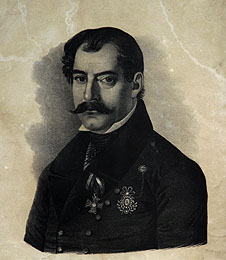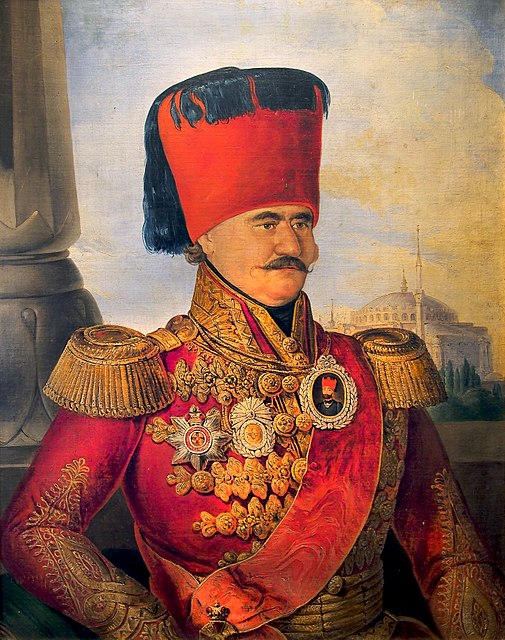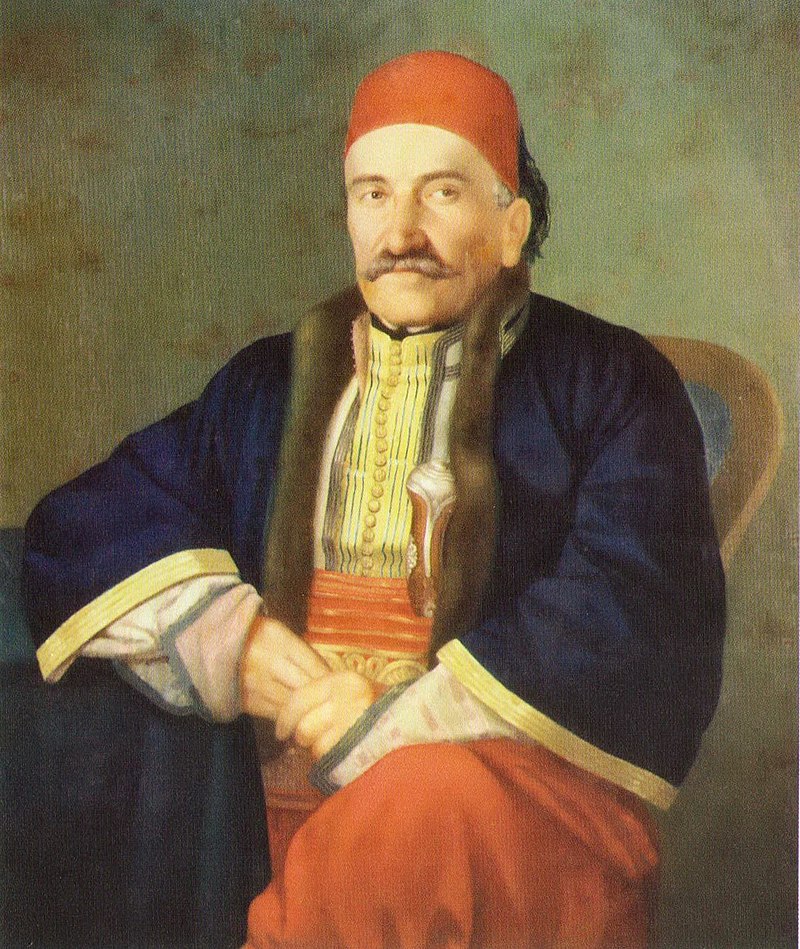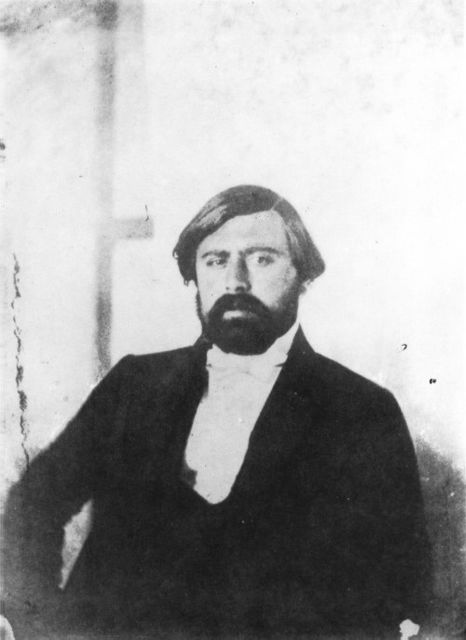OUR BLOG
AVRAM PETRONIJEVIĆ
SERBIAN DIPLOMATS

Avram Petronijević was a Serbian politician, merchant, several times prime minister and minister of foreign affairs of the Principality of Serbia, chief diplomatic representative of Prince Miloš Obrenović, and one of the most prominent constitutional defenders. It is also recorded that he founded the first factory in Serbia, the “Avramovac” glass factory.
He was born in 1791 in Tekija on the Danube. It cannot be said that he graduated from great schools, but with his knowledge of foreign languages, he could compete with the best graduates of the faculties of that time. He spoke German, Greek, Romanian, Italian, Turkish, and French.
Petronijević initially worked in the offices of a Viennese merchant and then started his trade in Oršava. As he went bankrupt, in 1817 he returned to Serbia and reported to Prince Miloš, who paid off his debts and found him a job.
Although he also worked as a scribe and even as a coachman, in 1817, due to his knowledge of the Greek language, he became the personal secretary of Prince Miloš Obrenović.
With the duke’s support, he was a member of the Serbian deputation in Constantinople, but due to the outbreak of the Greek Uprising in 1821, the delegation was detained. They were political hostages, so in prison, Avram studied philosophy, history, theology, mythology, geography, and Turkish politics, thus preparing for future diplomatic affairs.
After returning to Serbia, he became one of Prince Miloš’s closest associates. He was on duty as the duke’s secretary and actively participated in the suppression of the Čarapić rebellion.
 Prince Miloš Obrenović
Prince Miloš Obrenović
As part of the Adriatic peace agreement after the Russo-Turkish war also applied to Serbia, because the Ottoman Empire undertook to return 6 torn nahijas (regional type of administrative divisions) to Serbia, Prince Miloš sent Đorđe Protić and Avram Petronijević to negotiations in Constantinople, where, after the ratification of the peace, ceremonially presented by Hatsherif from 1829.
A year later, together with Cvetko Rajović, Petronijević traveled to Petrograd to thank the Russians for their support, and on that occasion received the Order of St. Vladimir of the IV order.
DEFENDER OF THE CONSTITUTION
According to Hatišerif, Prince Miloš Obrenović was supposed to share power with the Council, but the prince continuously avoided putting it into practice, which is why Mileta’s rebellion broke out. The organizer of the conspiracy was Stojan Simić, and at the heart of the movement was Avram Petronijević. Prince Miloš was forced to accept the demands of the rebels and convene a national assembly, at which the Sretenj Constitution was passed on February 15, 1835, which limited the prince’s absolutism.
After the promulgation of the Sretenj Constitution, Petronijević was appointed Minister of Foreign Affairs, and after the repeal of the Sretenj Constitution, he became the Prince’s representative and significantly influenced the creation of the Turkish Constitution by introducing key provisions limiting Miloš’s power in favor of the Council and the defenders of the constitution.
When Miloš renounced princely authority in 1839, Petronijević became a member of the three-member viceroyalty together with Jevrem Obrenović and Tom Vučić. He was deputy to Prince Milan, who was ill at the time, and to Prince Mihail, who was a minor.
REIGN OF KARADJORDJEVIĆ
After the election of Aleksandar Karađorđević as a prince in 1842, he became the prince’s representative and minister of foreign affairs. However, Petronijević and the defenders of the constitution connected with France and Great Britain through Polish emigration, which is why Russia demanded the re-election of the prince as well as the temporary removal of Vučić and Petronijević from Serbia. The assembly expressed its dissatisfaction with the Russian demands, so after negotiations, it was agreed that the prince, Vučić, and Petronijević would resign, but that they would be allowed to stay in Serbia.
 Toma Vučić Perišić
Toma Vučić Perišić
When Aleksandar Karađorđević was re-elected prince at the Vidovdan Assembly in 1843, the Russian government made the confirmation of the prince conditional on the request that Vučić and Petronijević leave Serbia, which they did after being refused. They returned to Serbia on August 29, 1844, and along the way, they were welcomed everywhere by enthusiastic people.
After his return, Petronijević was again appointed Prime Minister (and Minister of Foreign Affairs) and during the reign of Prince Aleksandar Karađorđević, until his death, he was loyal to the prince, and with great authority.
It was recorded that Petronijević also joined the initiative of entrepreneurial spirit in the Principality of Serbia. Thus, in 1846, he opened the first factory for the production of glass in Belica, and two years later he successfully exported the first packages of glass to Turkey. In the Native Museum in Jagodina, as well as in other museums, today there are glass products from this factory on display, which at the same time represent the oldest Serbian industrial product.
He was married to Stanija Karamarković, and Prince Miloš was the matchmaker and best man at their wedding. With Stana, he had sons Ljubomir and Milan Petronijević.
 Ljubomir Petronijević
Ljubomir Petronijević
He died in Constantinople on April 22, 1852, during an official mission, and was buried in the Church of Saint Petka on the Bosphorus.







 2018
2018